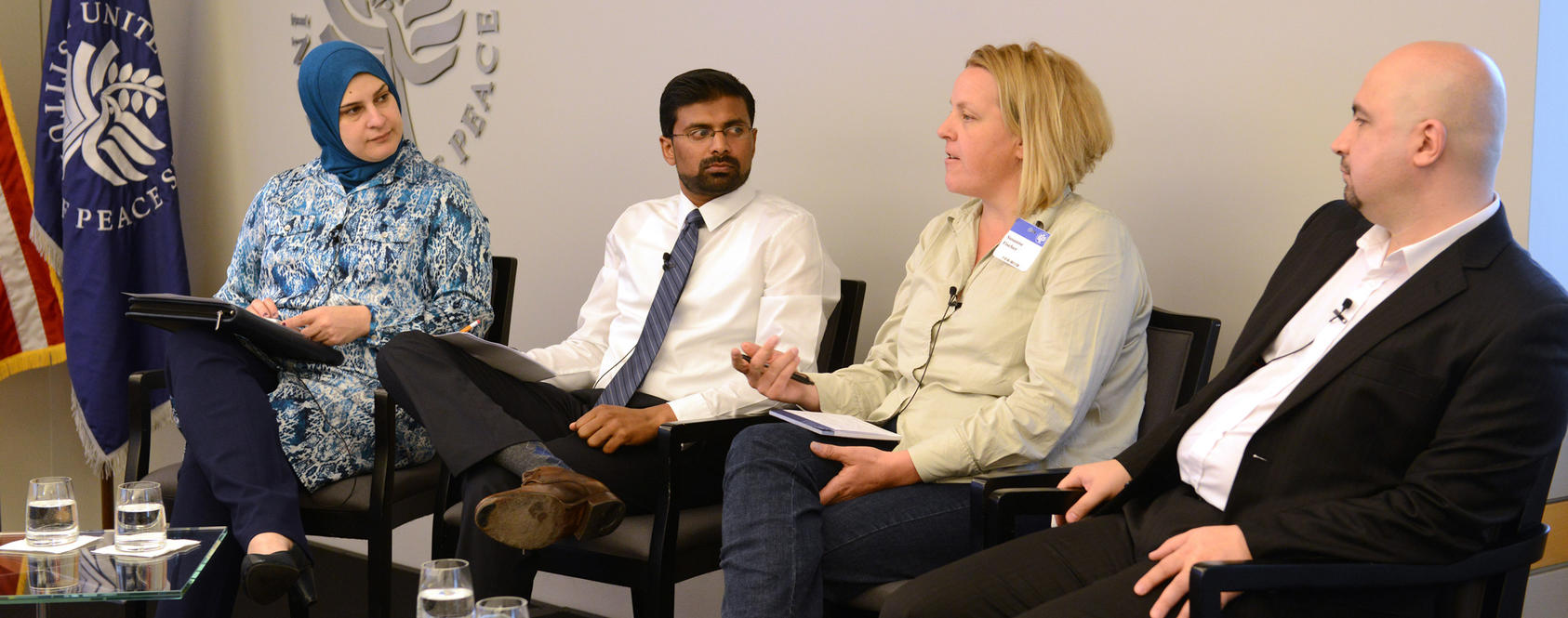Fanning the Flames or Fueling the Peace?
The Role of Media in Conflict in the Middle East and North Africa
On May 8th 2014, the U.S. Institute of Peace and the Institute for War & Peace Reporting hosted a panel to discuss on the role of the media in both inciting and mitigating violence.

While it is generally accepted that there is a strong correlation between a free press and democracy, there is less known about the role that media -- particularly independent media -- plays in countries in the midst of war or just emerging from conflict.
What can be learned from the experiences of Iraq and Afghanistan, where the U.S. and other donors have invested significant infusions of aid in building independent media sectors? Or from the more recent transitions of Libya, Egypt and Tunisia, among others? How are the numerous small but tenacious outlets in Syria, many run by untrained citizen journalists, affecting the war?
Susanne Fischer and Ammar al-Shahbander, both stationed in the Middle East for IWPR, have lived these issues over the past decade. They joined USIP's Anand Varghese to explore how media shapes conflict and post-conflict societies in the Middle East and North Africa. The audience was encouraged to participate in the conversation via Twitter with #ConflictReporting.
Speakers
Ammar al-Shahbander
Chief of Mission, Iraq, Institute for War & Peace Reporting
Susanne Fischer
Regional Programme Manager, Middle East, Institute for War & Peace Reporting
Anand Varghese
Program Officer, PeaceTech Initiative, U.S. Institute of Peace
Manal Omar, Moderator
Vice President of the Middle East and Africa Center, U.S. Institute of Peace



